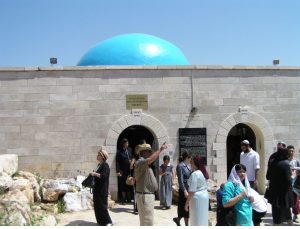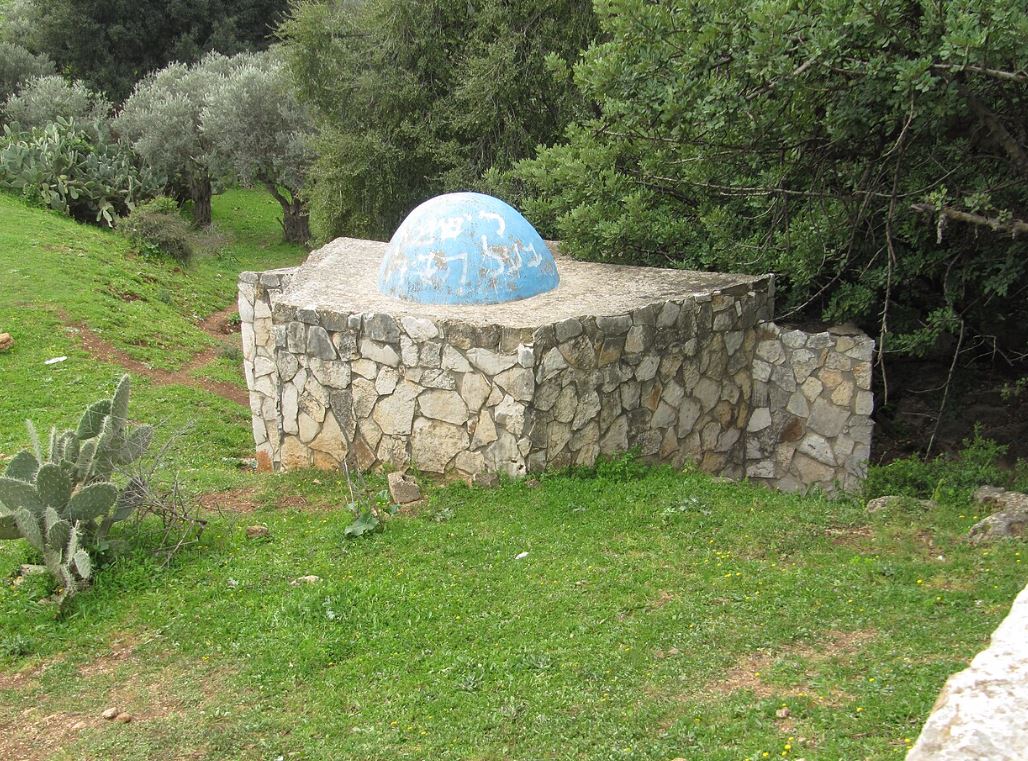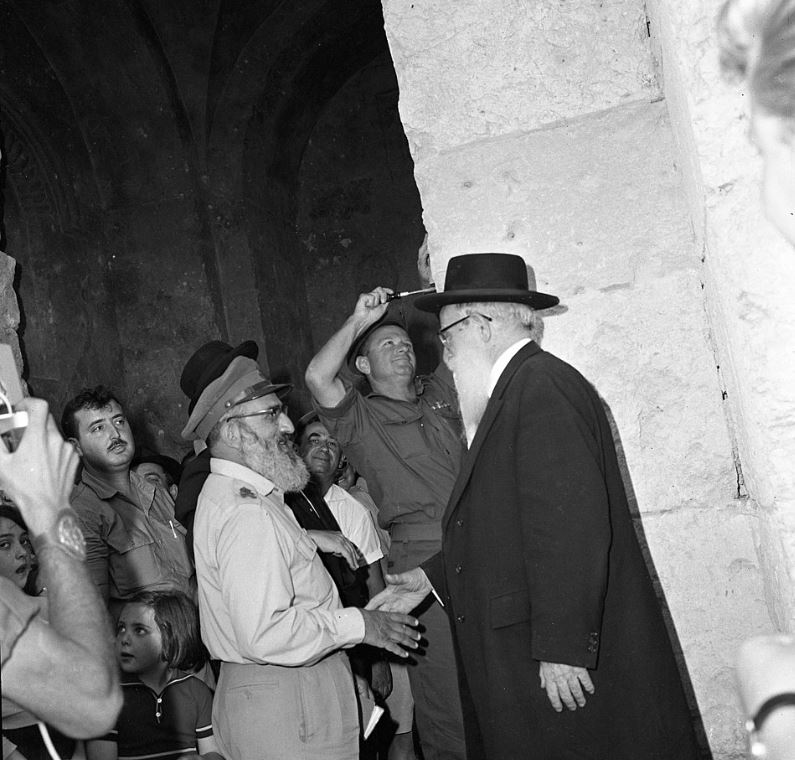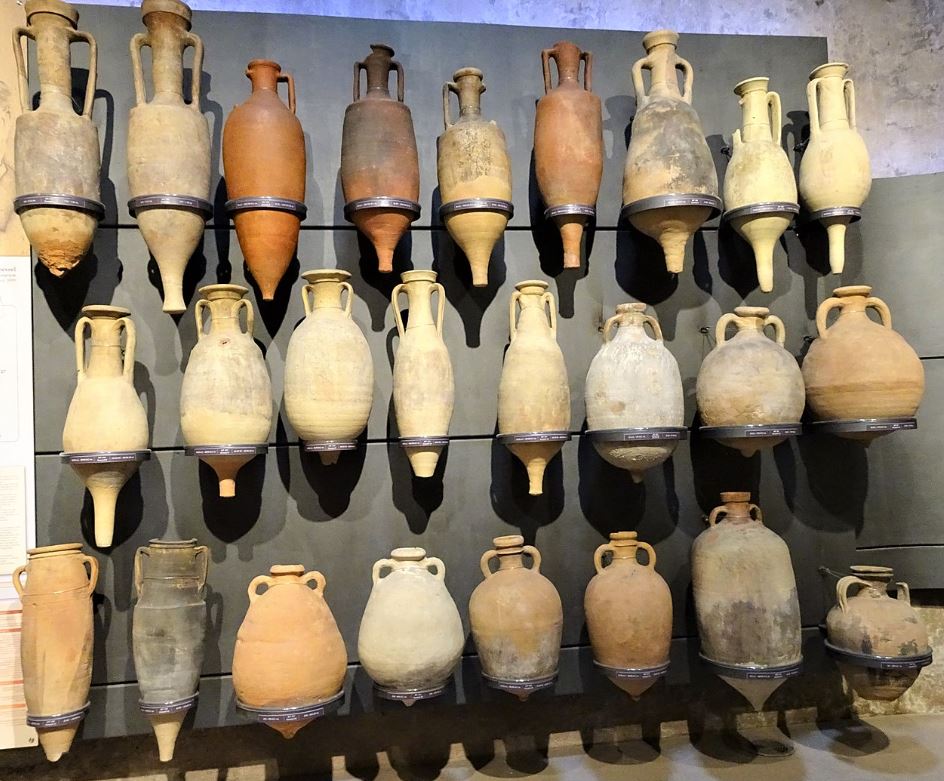“The Sages taught: There was an incident involving one man whose children did not act properly. He arose and wrote a document transferring all his property to Yonatan ben Uziel” (Bava Batra 133b)
The hero of this tale of inheritance is a man named Yonatan ben Uziel. He is a contemporary of the great sage Shammai and manages to best him in a halachic argument, as we see in the continuation of the story:
“Shammai came with his staff and traveling bag [to protest his giving part of the property to the man’s children against the deceased’s wishes.] Yonatan ben Uziel said to him: Shammai, if you can repossess the property that I sold and that I consecrated, you can repossess what I returned but if not,[ as the property is mine and I have the right to do with it whatever I want,] you cannot repossess what I returned. Shammai then said: Ben Uziel reprimanded me; ben Uziel reprimanded me,” (Bava Batra 133b – 134a)
Who is this man who knows more than the great sage Shammai? Only later do we learn that this Yonatan was actually the most accomplished of Hillel’s students:
“the Sages taught: Hillel the Elder had eighty students. Thirty of them were sufficiently worthy that the Divine Presence should rest upon them as it did upon Moses our teacher, thirty of them were sufficiently worthy that the sun should stand still for them as it did for Joshua bin Nun, and twenty were on an intermediate level. The greatest of all the students was Yonatan ben Uziel, and the least of them was Rabban Yoḥanan ben Zakkai.” (Bava Batra 134a)
If Hillel was his teacher, Yonatan ben Uziel was part of the first generation of the Tannaim, in the first century CE. He seems to have been one of the greatest of that great generation. But in a fascinating parallel story, it is Shammai who saves Yonatan from the same fate as the unfortunate children discussed in our Gemara;
“Yonatan ben Uziel’s father vowed not to let him have any enjoyment from his property and in his will gave his part to Shammai. What did Shammai do? He sold some, gave some to the sacred fund, gave [Yonatan] the remainder as a gift, and said: He who wants to attack this gift, let him first get back [the merchandise] from the buyers and from the sacred fund; after that he can get [the remainder] back from this” (Yerushalmi Nedarim 5:6)
The stories are so similar that we might question whether there was a mixup and the tale related here in the Bavli just transposed the names and put in a new, third character. This is certainly possible. What is the background to the Yerushalmi’s tale? There is no explanation why Yonatan’s father did not give him his rightful inheritance. Could it be that the son also “did not act properly” as in our story? Or perhaps the father did not approve of Yonatan because he studied Torah with Hillel and dad was a staunch Shammai-ite , as evinced by his giving the money to Shammai?
In any case, Shammai himself wishes to encourage the young man and returns his inheritance to him, in a beautiful example of cooperation with the students of his rival. Yonatan does not betray this trust and goes on to become so brilliant that his Torah study would cause fire to erupt:
“Yonatan ben Uziel, when he sat and was engaged in Torah any bird that flew over him was immediately incinerated.” (Sukkah 28a)
Rashi explains that his words were so profound that angels would gather to listen, bringing the fire. Tosafot likens his teaching to the giving of the Torah at Mount Sinai, a fiery event. Rabbi Aaron Heyman brings a more rational explanation: Yonatan could refute any argument with just a few words, “burning up” opposition to his halachic positions.
Despite his prowess, we have no teachings of Yonatan ben Uziel in the Mishnah or the Gemara. Dr. Mordechai Margoliot suggests that everything he taught was from the school of Hillel and his words are contained in those traditions. Rather, Yonatan is famous for a different set of words: his translation of the books of the Prophets. This was a controversial undertaking at the time, as the rabbis worried that esoteric ideas would be revealed to people who should not know them, and they forbade him from continuing to translate the Writings:
“The translation of the Prophets was composed by Yonatan ben Uziel based on Haggai, Zechariah, and Malachi. [when Yonatan ben Uziel wrote his translation] Eretz Yisrael quaked over an area of four hundred parasangs [parsa] by four hundred parasangs, and a Divine Voice emerged and said: Who is this who has revealed My secrets to mankind?” (Megillah 3a)
Targum Yonatan, as the translation is known, was written in Galilean Aramaic but was later edited in Babylonia, so the language is a mixture of styles. It is still printed in traditional texts of the books of the Prophets and is a helpful (if you know Aramaic), mostly literal explanation of the words. However, if you open up a Mikraot Gedolot book of the Torah, you might also see a Targum Yonatan. This is what is known today as “pseudo-Jonathan.” It is a translation of the Torah that was undertaken at a time and by a person unknown. It was called the Targum Yerushalmi and some scholars think that this was often shortened to TY, which then “became” Targum Yonatan, erroneously.
Yonatan’s legacy took another strange turn in the twentieth century. While there is no reference in Rabbinic literature to his grave, by the thirteenth century people were visiting a site in the eastern Galilee, near an Arab village called Amuka not far from Tzfat. This is not unusual – many graves of Tannaim and Amoraim are marked in that same area, and grave pilgrimage became very popular in the late Middle Ages, with the “season” beginning right after Passover, peaking with Lag BaOmer in Meron and continuing on to the summer. Yonatan’s yahrzeit was commemorated on the 26th of Sivan.

Jonathan Stein, Public domain, via Wikimedia Commons
In the 1950s, or some say 1970s, a new “tradition” began. Singles started to visit the grave, to pray for a match. While praying for marriage and children at righteous people’s graves is a common thing, Amuka and Yonatan ben Uziel became “the place” to go for a shidduch. Why? Good question. Some attribute it to a misreading of Rashi on Yevamot 17a, which links the phrase “and it is deep (amuka)” to Rashi’s statement that Harpanya is the place where people go to find a match. Others attribute it to the fact that Yonatan never married, a fact that is not found anywhere in the Gemara. And yet others think that it was an invention by tour guides. . .
Amuka is in the middle of the beautiful Biriya Forest. The road to there has been paved and is no longer the adventurous drive it once was. Many people travel there to pray for a shidduch, some going so far as to “forget” their siddurim there with a name and phone number inside. But how many of them then sit and learn some of the Targum Yonatan?

Davidi Vardi Pikiwiki Israel, CC BY 2.5 <https://creativecommons.org/licenses/by/2.5>, via Wikimedia Commons










